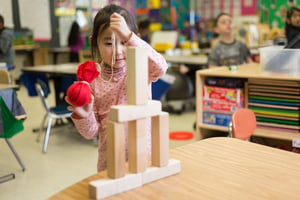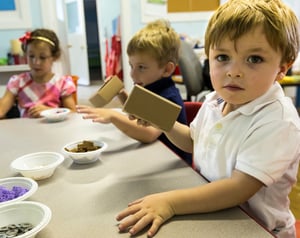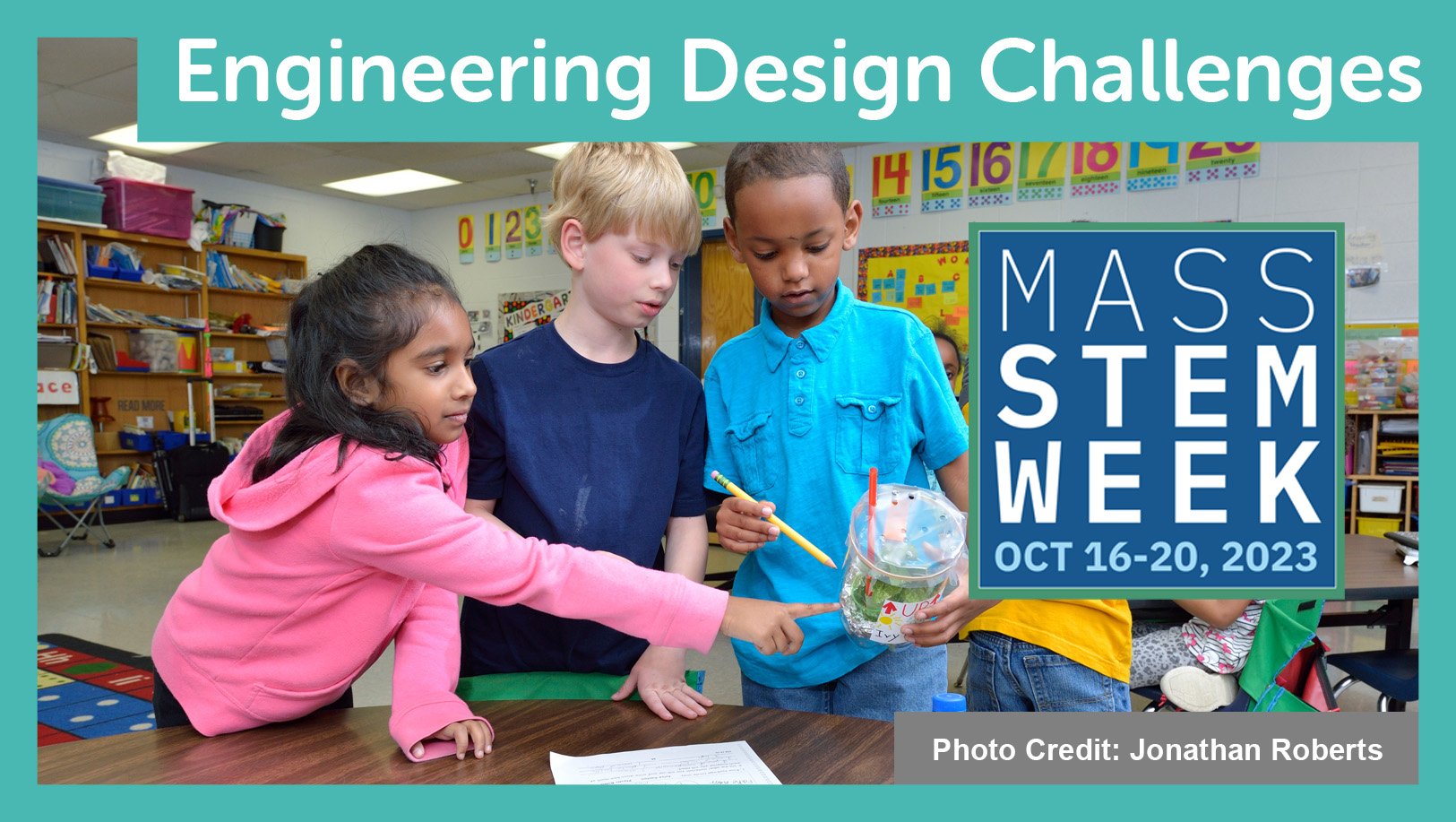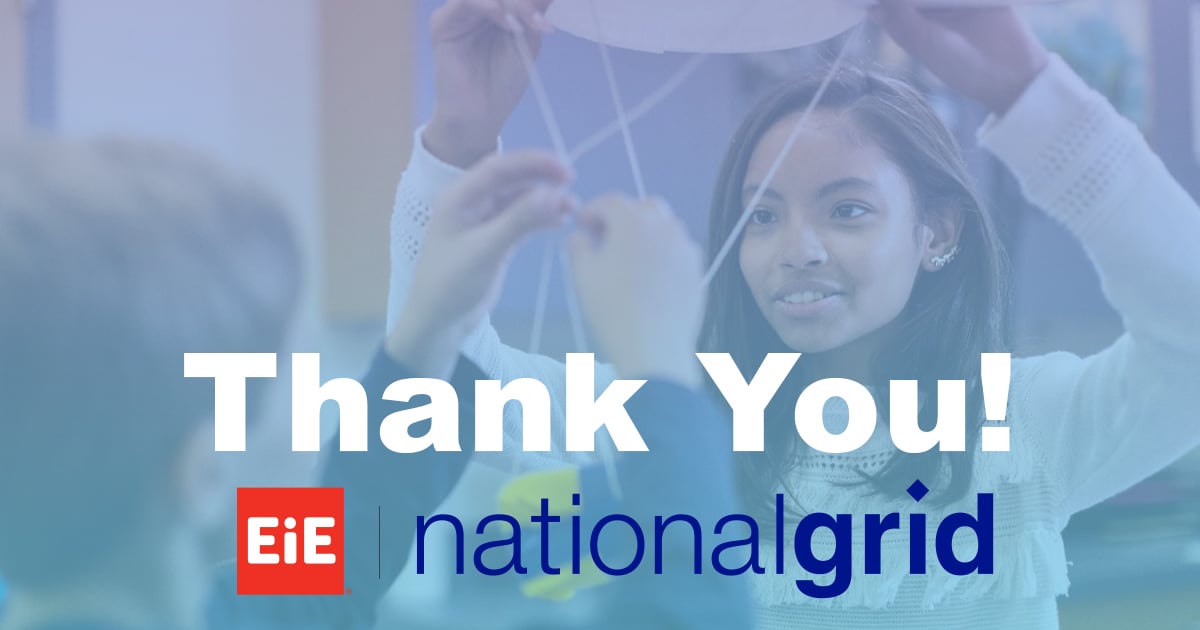 Before creating our preschool curriculum Wee Engineer, we knew that it was important to answer these questions, "Why engineer with preschoolers?" and “How will engineering support early childhood development?” Preschoolers make a lot of things, and our challenge was to channel this natural inclination of children into an engineering activity that would align with the skills they’re already developing. We conducted hours of research, consulted with many early childhood educators, and tested our activities in various early childhood settings with the goal of answering the above question.
Before creating our preschool curriculum Wee Engineer, we knew that it was important to answer these questions, "Why engineer with preschoolers?" and “How will engineering support early childhood development?” Preschoolers make a lot of things, and our challenge was to channel this natural inclination of children into an engineering activity that would align with the skills they’re already developing. We conducted hours of research, consulted with many early childhood educators, and tested our activities in various early childhood settings with the goal of answering the above question.
Through this work, we identified several ways in which engineering is beneficial to young children as they develop skills in these important learning domains: social-emotional, language acquisition, executive functioning, and fine and gross motor skills.
Social-emotional Learning
Researchers have found emotional development and social skills are essential for school readiness. At the beginning of the school year, preschoolers are still learning how to regulate their emotions and get along with others. They can be possessive, easily frustrated, and have difficulty sharing.
Engineering activities provide opportunities for children to grow and mature, and engineering design challenges promote social and emotional learning. As children engineer, they build empathy by working alongside their peers to solve a problem for a beloved puppet. During whole-group or small-group discussions, they learn how to listen to their peers (and not talk over them). In our Educator Guide we provide language to help educators develop these skills, and we highlight key moments where educators can encourage children to work alongside each other effectively. We also recommend resources and books to make it easy for learning to continue at home.
 Language Acquisition in Preschool
Language Acquisition in Preschool
It’s important to help young learners learn how to communicate their ideas. A well-designed engineering challenge will provide children with multiple opportunities to discuss their ideas, explain their choices, and support their statements with evidence.
For example in Wee Engineer, we provide prompts for our educators to help them identify clear moments where they can guide children’s ongoing reflection. Children this age benefit from your support in this way. Asking questions, “What are you exploring right now?” “Which materials do you think work well?” “Why did you use this material instead of this one?” will remind them to slow down and consider what they’re doing. In this way, they also have a chance to use basic engineering vocabulary in a specific context that is goal-oriented.
Executive Functioning in Preschoolers
Between the ages of 3 and 4, it’s extremely important that children learn how to follow directions and processes. An age-appropriate preschool engineering design process (EDP) with three steps allows children to practice how to do exactly that! Children move through a problem-solving process that will help them slow down their thinking, make informed decisions about materials, and reflect on how well they’ve solved the problem by testing, evaluating, and improving their designs. Teach preschoolers how to think like an engineering using the steps of the engineering design process.
Fine and Gross Motor Skills Development
During our development process, we identified key motor skills that children should perfect during preschool. We then designed our activities to give them an opportunity to practice those skills in context and promote fine motor skills development. They don’t just practice a basic method like taping or cutting; they use that skill to solve a problem. This is what distinguishes engineering from crafting, making, or tinkering, and what makes it such a powerful field for young children to engage in early. Engineering design challenges are perfect fine and gross motor skills activities for preschoolers.
There are many reasons to start engineering early: children can practice important skills, discover capabilities they didn’t know they had, and set a foundation for successful STEM learning later on in their schooling.
Hands-on engineering activities empower young children to see themselves as problem solvers.









